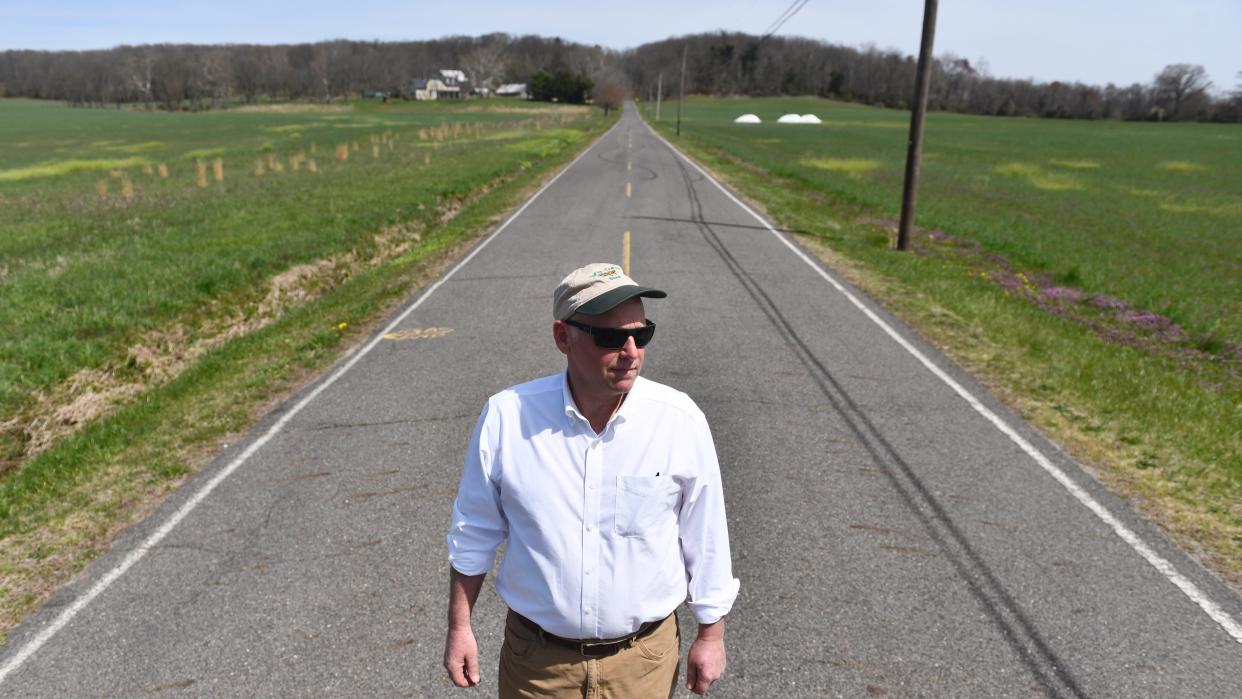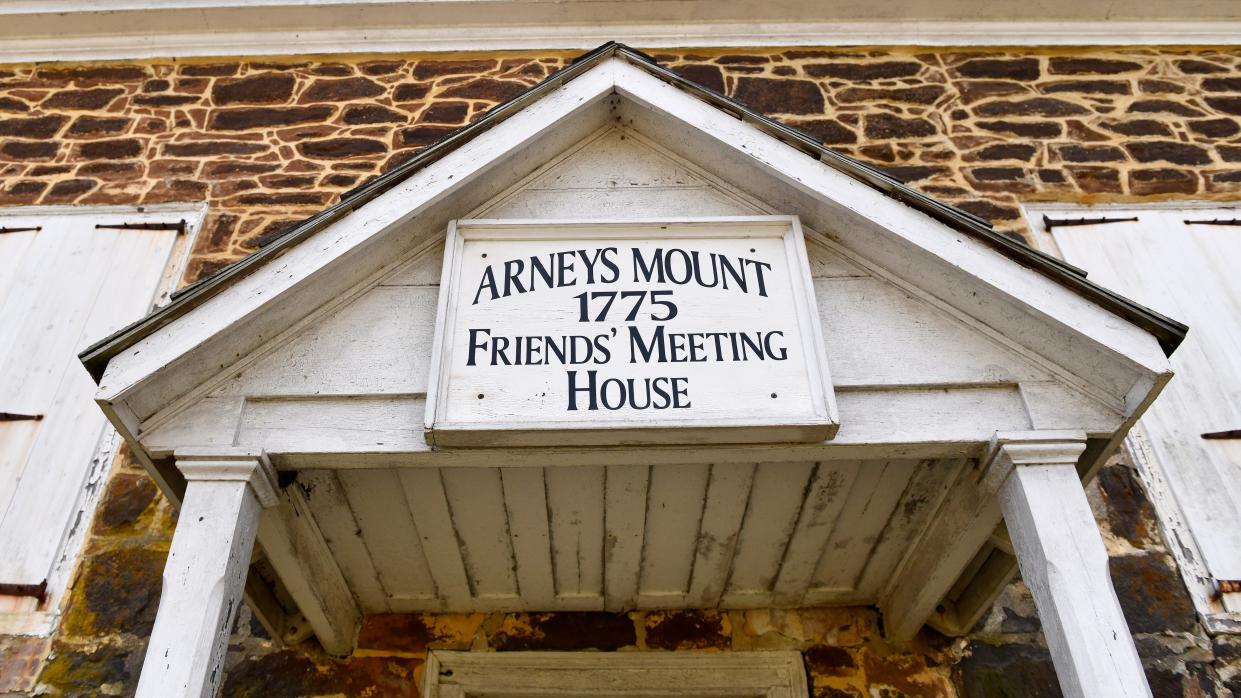Burlington County farming town fends off large housing complex … for now
SPRINGFIELD TWP. — Local officials are celebrating a recent court victory over one of the nation’s biggest housing developers, a win that keeps intact one of the most rural, lightly populated, and heavily agricultural areas in New Jersey.
Builder D.R. Horton Inc. has a contract to buy the Van Wagoner family farm, about 286 acres unfolding on either side of Arney’s Mount-Birmingham Road. It wants to build nearly 400 homes, with 15 percent intended as “affordable” housing and the rest as market rate.
More: It's real. The beach shrunk, and you have to adjust
More: Burlington County preserves nine farms totaling 700 acres for $3.65 million
Aside from owners who want to sell, the property is a poor candidate for housing when weighted under local, county, and state planning policies. Its major flaws are a two-lane, country road for access; closeness to other farms and open spaces, like the county park; no public transportation nearby; and a lack of water or sewer utilities, with only distant connection options.
“We won a good decision in the trial court,” Mayor David Frank said last week. “We’re very appreciative of that decision. …. But it was also, I think, a good decision for the idea of land preservation. The idea of good planning.”

Springfield now waits to see if D.R. Horton appeals.
In state court, housing claims hold advantage over farms, open space
Affordable housing, farmland preservation, and open space preservation are all top priorities in New Jersey’s public policies pantheon. Affordable housing gets special deference because the state Supreme Court, in its “Mount Laurel cases,” decided the obligation to provide housing has roots in the state Constitution.
“I think that they (justices) were trying, in the best way they could, to combat invidious discrimination that was based largely on race,” said Frank, an attorney who handles land use law cases. “They were using, I think, economic status as a proxy, in great measure, for that. I’m not going to say that they were wrong to try to have that fight.”
Frank said the problems are the courts are not well suited to administering affordable housing implementation and follow-on state legislation set up complex rules that also have changed over time.

“Where we are now is that the processes for determining your obligation and for determining how you’re going to implement it are, at least theoretically, largely reliant on how you fall within the State (Development and Redevelopment) Plan,” Frank said.
In Springfield’s case, that state plan classifies it as entirely rural and environmentally sensitive. Any high-density development is to occur only in officially designated areas, “centers,” where the municipality and other governments intend to invest in sewer, water, and other infrastructure.
The township has a largely farming-based economy. Its land is about 75 percent taken up by farms, many preserved, and by open space as the results of decades of planning decisions and spending.
Springfield wins in court arguing good planning matters, too
The long legal fight played out over about two years in Burlington County Superior Court before Assignment Judge Jeanne Covert.

The court record notes that D.R. Horton first proposed 1,540 housing units. The mix was to be “active adult” single-family homes, traditional single-family homes, townhomes, and 96 affordable housing-type apartments.
Today, Frank said, Springfield only has 1,100 to 1,150 homes. The last two decades have seen a net increase of about 23 homes built, he said.
D.R. Horton reduced its goal to 662 in a proposal submitted in March 2022, as site limitations became clearer. That dropped to 389 units in December 2023.
Covert made it clear she was angered by the timing of that last revision, just before trial, but she allowed the case to go ahead. Company attorneys did not respond to a request for comments on the lawsuit.
On March 7, Covert issued an opinion in favor of Springfield.
Covert held that the township, as Horton argued but Springfield denied, has a constitutional obligation to provide a fair share of the regional need for affordable housing. And even its exceptional efforts to preserve farms and open space do not erase that obligation, the judge wrote.
Covert, however, agreed with Springfield that Horton had picked a site clearly unsuitable in nearly every respect for housing. Not even playing to affordable housing law could overcome the flaws, she wrote.
“This project takes sound planning and turns it on its head, along with a demonstrated and overt lack of concern for the would-be residents of this community,” Covert wrote.
Joe Smith is a N.E. Philly native transplanted to South Jersey 36 years ago, keeping an eye now on government in South Jersey. He is a former editor and current senior staff writer for The Daily Journal in Vineland, Courier-Post in Cherry Hill, and the Burlington County Times.Have a tip? Support local journalism with a subscription.
This article originally appeared on Cherry Hill Courier-Post: Springfield Township wins court block against D.R. Horton developer
